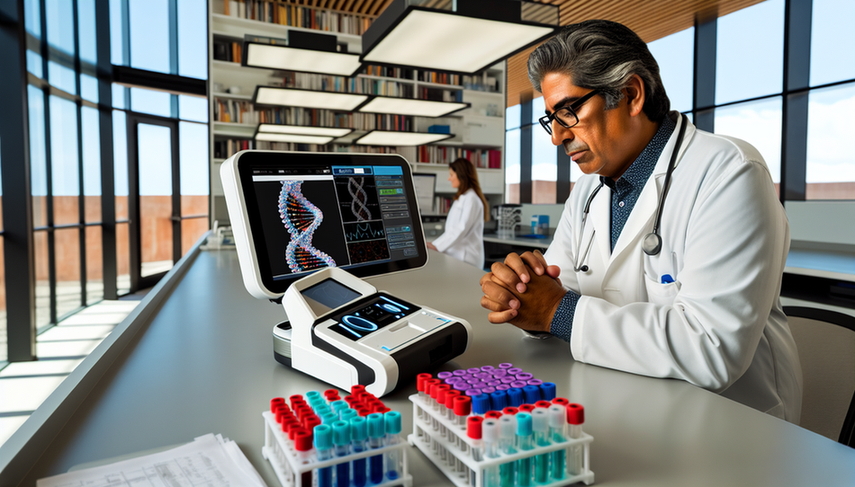Innovative Laboratory Tests and Rapid Point-of-Care Diagnosis: Advancements in Molecular Analysis

In recent years, the field of molecular analysis has experienced significant advancements, particularly in the context of innovative laboratory tests and rapid tests. These technologies have transformed the way physicians approach point-of-care diagnosis, enabling faster and more accurate detection of various diseases. This article explores how these innovations are changing the landscape of medical diagnosis, with a particular focus on molecular testing.
Advancements in Molecular Diagnosis at the Point of Care
The development of rapid and precise molecular tests has been crucial for improving the diagnosis of infectious diseases. A notable example is the use of CRISPR-Cas13a technology for the detection of SARS-CoV-2, which allows for direct and rapid detection of the virus without the need for amplification, utilizing a mobile phone microscope for result reading [1]. This technology is not only rapid but also portable, making it ideal for point-of-care diagnosis.
Another significant advancement is the development of the Xpert MTB/RIF Ultra test for the detection of tuberculosis and rifampicin resistance. This test improves sensitivity in negative sputum samples and provides more reliable results in detecting drug resistance [2]. The ability to perform these tests at the point of care is especially valuable in areas with a high burden of tuberculosis.
Additionally, loop-mediated isothermal amplification (LAMP) technology has proven to be an effective technique for the rapid diagnosis of pathogens, including the SARS-CoV-2 coronavirus. This technique offers sensitive and specific detection and has the potential to transform molecular analysis at the point of care [3].
Conclusions
Innovative laboratory tests and rapid tests are revolutionizing point-of-care diagnosis, enabling physicians to make more informed and timely decisions in the treatment of their patients. The integration of technologies such as CRISPR, LAMP, and portable molecular diagnostic platforms is enhancing the accuracy and speed of diagnosis, which is crucial for the effective management of infectious and chronic diseases. As these technologies continue to evolve, it is essential for healthcare professionals to stay informed about the latest advancements to optimize patient care.
Referencias
- [1] Amplification-free detection of SARS-CoV-2 with CRISPR-Cas13a and mobile phone microscopy
- [2] The New Xpert MTB/RIF Ultra: Improving Detection of Mycobacterium tuberculosis and Resistance to Rifampin in an Assay Suitable for Point-of-Care Testing
- [3] Loop-mediated isothermal amplification (LAMP): An effective molecular point-of-care technique for the rapid diagnosis of coronavirus SARS-CoV-2
Created 23/1/2025
